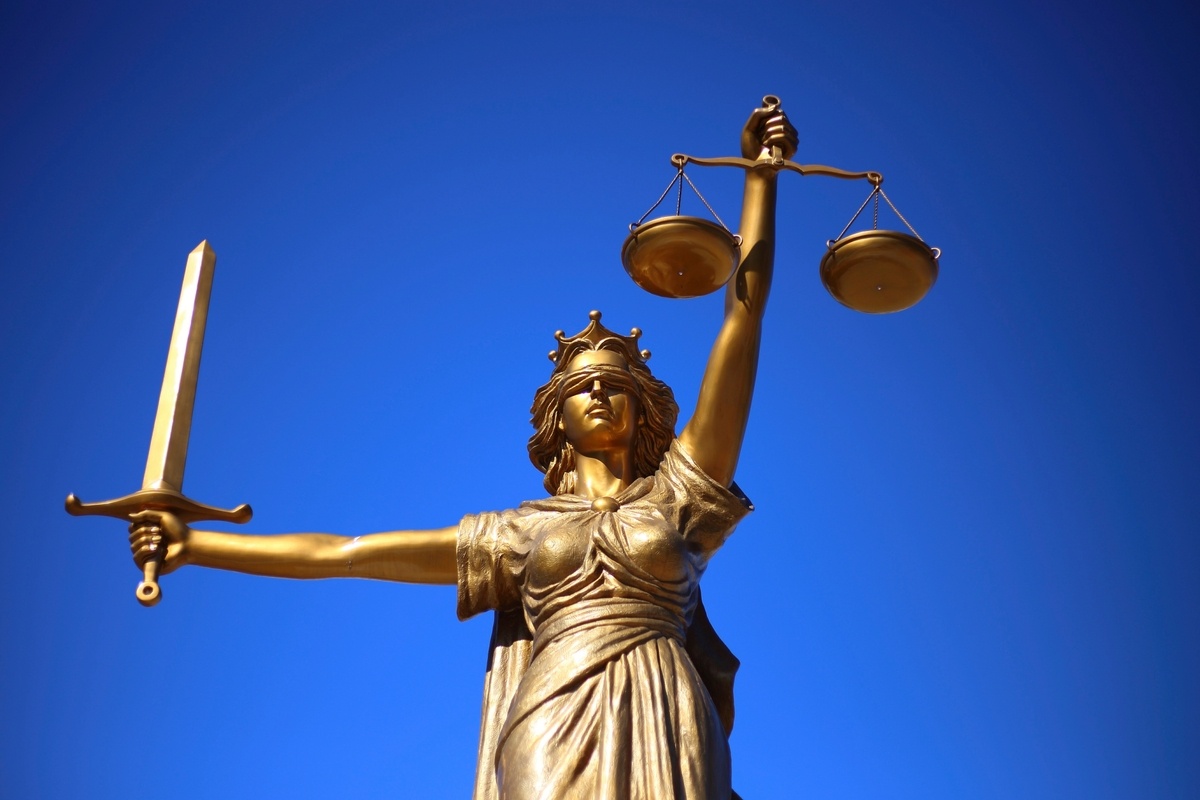Ex parte Milligan and the Fourth Circuit’s Travel Ban Decision
A Civil War-era decision about military commission trials took center stage in the U.S. Court of Appeals for the Fourth Circuit’s en banc decision last week upholding a district court injunction against President Trump’s second travel ban. The very first sentence of the Fourth Circuit’s majority opinion declares:
A Civil War-era decision about military commission trials took center stage in the U.S. Court of Appeals for the Fourth Circuit’s en banc decision last week upholding a district court injunction against President Trump’s second travel ban. The very first sentence of the Fourth Circuit’s majority opinion declares:
The question for this Court, distilled to its essential form, is whether the Constitution, as the Supreme Court declared in Ex parte Milligan, 71 U.S. (4 Wall.) 2, 120 (1866), remains “a law for rulers and people, equally in war and in peace.”
But that is not remotely the question presented by the travel ban case.
Arising during the Civil War, Milligan asked whether the executive branch could try by military commission in the loyal state of Illinois civilians caught plotting to steal military weapons and liberate Confederate prisoners, despite a congressional statute that banned military trials in those circumstances. By contrast, the Fourth Circuit was asked whether, in peacetime, President Trump exercised the discretion granted by a congressional immigration statute in an unconstitutional way when he temporarily barred entry of non-U.S. citizens from certain Muslim-majority countries.
In rejecting a stay of a district court’s order enjoining Trump’s first travel ban, the Ninth Circuit also quoted the same passage from Milligan. Why Milligan, why now, and why in this context?
Just as a Freudian slip is said by psychoanalysts to reveal processes of the unconscious mind, sometimes the verbal tics, mis-citations of precedent, excessive or evasive rhetoric, and other oddities in judicial opinions can give clues to the underlying thoughts and motivations of the judges.
The Real Milligan
In the Fate of Liberty: Abraham Lincoln and Civil Liberties, historian Mark Neely describes how Milligan came to be deified as “a landmark in the history of civil liberties” during the twentieth century—“the palladium of the rights of the individual.” The reality is far more equivocal.
Thousands of civilians from loyal states were tried by U.S. military commissions during the Civil War. Many were guerrillas, saboteurs, and other violent pro-Confederate actors in war-ravaged border states like Missouri. But some were ordinary draft dodgers, press critics, and other nonviolent opponents of the Lincoln government and its war policies.
During the war, the Supreme Court as a body did not express any concern about these military trials of northern civilians, despite opportunities to do so. (But in 1861, Chief Justice Roger Taney, a partisan for slavery who despised the Lincoln administration, wrote a solo opinion denouncing the military arrest of a prominent Maryland slaveholder who was sabotaging infrastructure to prevent the Union Army from defending Washington DC.)
In an 1864 decision, the Supreme Court implied that the military detention and trial of a Democratic politician in Ohio were legal, as I described here (pp. 1907-11). Other wartime Court decisions—reaffirmed multiple times after the war—held that the U.S. government was entitled to treat all residents of the Confederate States as de facto enemy aliens who lacked constitutional rights, notwithstanding that they were also considered wayward U.S. citizens. And during the war, the Court applied the traditional rule that nonresident alien enemies are barred from accessing U.S. courts during wartime to Confederate residents.
So a majority of the Court supported tough U.S. government wartime policies directed against civilians both north and south. In the spring of 1865, the Confederacy was defeated, Lincoln was assassinated, and Andrew Johnson became president. General U.S. Grant, heading the Army, and a Republican majority in Congress settled on a policy of protecting the freed slaves, enfranchising them, and providing military protection as they and pro-Union whites attempted to use democratic means to reform and reconstruct the South. Johnson, on the other hand, wanted the military to pull out of the South and allow the white men of the region—the ex-Confederates—to resume control.
The gradualist approach of Congress was called into question by a shocking reign of violence soon launched by unreconstructed rebels against freed slaves and their white allies. The summer of 1866 saw two huge “riots”—as the press called them—in Memphis and New Orleans, in which white mobs massacred blacks. At the same time, state legislatures dominated by ex-Confederates and their sympathizers were enacting the so-called Black Codes in an attempt to reinstitute slavery in all but name, and state legal systems in the South were declining to punish white-on-black terror.
So in the spring and summer of 1866, Congress took stronger action, criminalizing the enforcement of many aspects of the Black Codes. And Congress overrode President Johnson’s veto of the Second Freedmen’s Bureau Act. This statute contained a provision, strongly criticized as unconstitutional by Johnson, allowing military commissions to replace state justice systems if they failed to protect blacks.
In December 1866, a year and a half after the war had ended, the Court issued its opinions in Milligan (the judgement of the Court had been announced earlier and the detainees released). All justices on the Court agreed that an 1863 congressional statute had barred military trials of civilians in loyal states if the local courts were open and functioning, as they had been when Milligan was caught and tried. But still a majority of the Court reached out unnecessarily to announce that, if Congress had tried to authorize military trials of civilians, then that would have been unconstitutional. Justice David Davis, the author of the majority opinion, conceded privately that he had written the opinion that way because of a concern that Congress was claiming “omnipotent power.” He was most likely referring to the Second Freedmen’s Bureau Act and other Reconstruction measures.
Davis’s opinion contained the now-famous language about courts standing up to the political branches:
The Constitution of the United States is a law for rulers and people, equally in war and in peace, and covers with the shield of its protection all classes of men, at all times and under all circumstances. No doctrine involving more pernicious consequences was ever invented by the wit of man than that any of its provisions can be suspended during any of the great exigencies of government. Such a doctrine leads directly to anarchy or despotism . . . .
This ringing passage contained a good bit of hypocrisy and misstatement of the law. As noted, the Court had supported—or at least failed to oppose—military commission trials while the war raged. Before and after Milligan, in cases arising out of the Civil War, the Court would repeatedly hold or imply that residents of the Confederacy and enemy soldiers wherever located lacked all constitutional liberties and lacked the right to petition the courts for redress.
Why the radically overbroad language in Milligan, and the decision of an unnecessary constitutional question about Congress’ power? In part, the Court was understandably concerned to restore civil-military and judicial-political branch balances that it thought had been disturbed by the war.
But in part, the Court almost certainly wanted to neuter congressional Reconstruction. If there was anyone who needed a “shield of protection” it was the newly freed slaves. Strong and evenhanded government was needed in the South. Only U.S. military power, backed by Congress, could provide it at that time. The freedmen did not benefit from the lofty declaration of the Court about the notional rights of “all classes of men” “in war and in peace.”
The Meaning of the Milligan Boomlet
The Milligan vogue did not originate with the travel ban decisions. Justice Kennedy and other justices who opposed the George W. Bush administration’s detainee and military commission policies in Rasul, Hamdi, Hamdan, and Boumediene were also fond of Milligan. It was a frequent staple of post-9/11 legal scholarship criticizing the government.
It is easy to see why. Milligan’s rhetoric nicely expresses a kind of judicial supremacy and constitutional universalism that is very attractive today among left-leaning lawyers, judges, and legal academics. Both the Bush administration and the Trump administration made aggressive-sounding claims about executive power and the inapplicability of judicial checks. Judges don’t like to be told they should butt out, especially by administrations that the judges may not fully trust. And increasingly the notion that some people, in some places or contexts might be unprotected by the U.S. courts and Constitution is seen as an unsavory and dangerous doctrine.
To the extent judges see themselves as part of the resistance to the lamentable President we are now saddled with, Milligan’s words must sing an invigorating kind of defiance. Trump made deplorable comments about Muslims during the campaign. Publicly standing up to a bully probably feels especially necessary because of Trump’s personal attacks on federal judges and his contempt for checks and balances and norms of propriety. Benjamin Wittes and Quinta Jurecic’s prescient analysis of “The Revolt of the Judges” keeps ringing more and more true.
Jostling back and forth between the judiciary and the executive is natural and generally a good thing. Any overreaching of the lower federal courts in these travel cases may well be corrected by the Supreme Court. But part of me fears something that the Milligan boomlet hints at. A judiciary too determined to revolt against Trump may forget the most important lesson of Milligan, when that case is correctly understood: both government power and judicial checks on that power are necessary components of liberty under law.




.jpg?sfvrsn=d27bd863_5)
